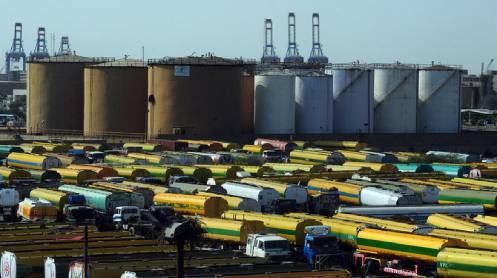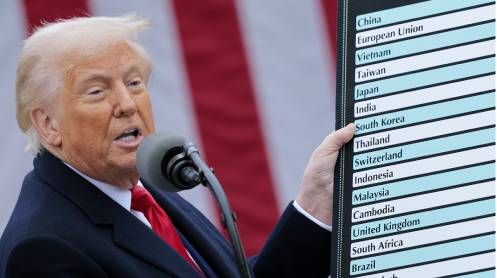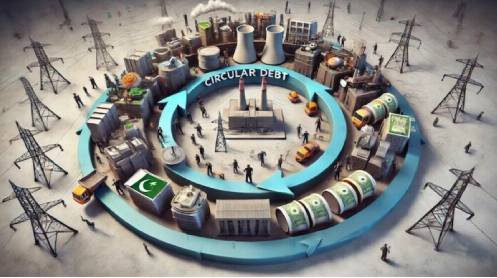KARACHI: Timing is of the essence in policymaking. A well-timed decision can yield optimal results. Although delays might bring benefits, they can also do considerable damage. Reflecting on the recently introduced oil refining policy for both existing and new projects, one can’t help but wonder about the lost opportunities that might have been seized with more proactive decision-making.
Currently, Pakistan has five oil refineries with a combined potential to produce approximately 20 million tonnes of petroleum products annually, including diesel, petrol, furnace oil, and jet fuel. However, a myriad of challenges, notably the substantial dip in furnace oil demand, has meant that the nation could only utilise 50% to 60% of its total refining capacity.
Data from the Oil Companies Advisory Council (OCAC) showed that the refineries produced less than 900,000 tonnes of refined products in July, equating to an annualised run rate of around 10.8 million tonnes. With low utilisation, the refineries typically fulfil only around 30% of Pakistan’s petrol and half of its diesel requirements. The remainder is imported.
The low utilisation has adversely impacted the oil refineries’ sales and profits. Nearly a third of their production has normally been of furnace oil, a fuel whose demand plummeted after its primary buyer – the power producers – switched to the cleaner and more efficient Liquefied natural gas (LNG). International regulations, particularly the International Maritime Organisation’s revised greenhouse gas emission rules that came into force from 2020, further dampened the demand for the kind of furnace oil our refineries produced.
The challenge here is that refineries inherently produce a spectrum of fuels whenever they process crude oil. The dwindling demand for furnace oil, both domestically and internationally, compelled them to downscale operations.
Yet, the tide might turn with the advent of the new oil refining policy. Aimed at uplifting the industry, the policy offers vital incentives like tariff protection and tax breaks to the sector’s participants to facilitate the modernisation and expansion of their plants.
Furthermore, the policy’s provisions for greenfield projects might invite substantial Foreign Direct Investment (FDI) from Saudi Arabia. The Kingdom has shown interest in developing a new 300,000 to 400,000 barrels per day oil refinery. Reports indicate a potential collaboration wherein Saudi Arabia would hold 30% ownership in the new mega refinery, with the rest funded by others including state-owned entities like Pakistan State Oil (PSO). The project might usher in Saudi Aramco, the world’s biggest oil company, to Pakistan, revolutionising the nation’s oil refining landscape.
The implications of this policy could extend beyond the refining sector. The entry of giants like Saudi Aramco, paired with the modernisation of current refineries, can elevate Pakistan’s oil refining sector to new heights. The resulting investments of around $14 billion or more from both local and international stakeholders will inevitably catalyse economic growth and job creation. Moreover, the ensuing increase in the production of eco-friendly petrol and diesel, in compliance with Euro-V standards, and a corresponding decrease in furnace oil generation, will allow existing refineries to meet more than half of the country’s petrol and all of its diesel demand.
Beyond this, some local refineries have ambitious expansion plans. This, combined with Saudi Arabia’s entry, could potentially double the country’s oil refining output in the foreseeable future. Such unprecedented growth in fuel output might pave the way for two untapped avenues: the export of petrol and diesel to other energy-hungry countries and the development of an indigenous petrochemical industry.
Therefore, if the oil refining policy yields the desired results, its impact on the economy could be monumental. The results can range from substantial forex earnings to job creation, amplified FDI, heightened national energy security, and self-sufficiency in fuel products.
However, it’s crucial to remember that this can’t happen overnight. Developing, expanding, and upgrading oil refineries is a lengthy and complicated process that could take six to ten years, or even more. Factor in Pakistan’s volatile economic and political climate, and the road ahead becomes even more challenging.
Pondering over this evokes a question: What if this policy had been instituted a decade ago? A proactive approach from the policymakers, with the introduction of the policy before the power sector’s transition from furnace oil to LNG commenced in 2015, might have permitted the oil refining industry to adapt timely, maximising petrol and diesel output while curtailing furnace oil volumes.
In this hypothetical scenario, Pakistan could have established a robust refining sector by 2023, potentially earning export revenues, producing large quantities of high-value fuel products, bolstering the petrochemical industry, and reaping other benefits. A strong refining sector might have placed the economy in a substantially better position than the current one.
Unfortunately, that proactive step wasn’t taken.
Although the oil refining policy’s introduction was belated, there’s still hope. The enthusiasm displayed by existing refineries and the potential partnership with Saudi Arabia shine a beacon of optimism. Yet, it’s essential for policymakers to glean lessons from past oversights. Being proactive can make a world of difference. Those at the helm of affairs must learn to anticipate industry shifts and tailor policies accordingly, strengthening Pakistan’s industries at the right time.
THE WRITER IS A CORPORATE CONSULTANT SPECIALISING IN BUSINESS AND ECONOMIC ISSUES, WITH A PARTICULAR EMPHASIS ON THE OIL SECTOR





